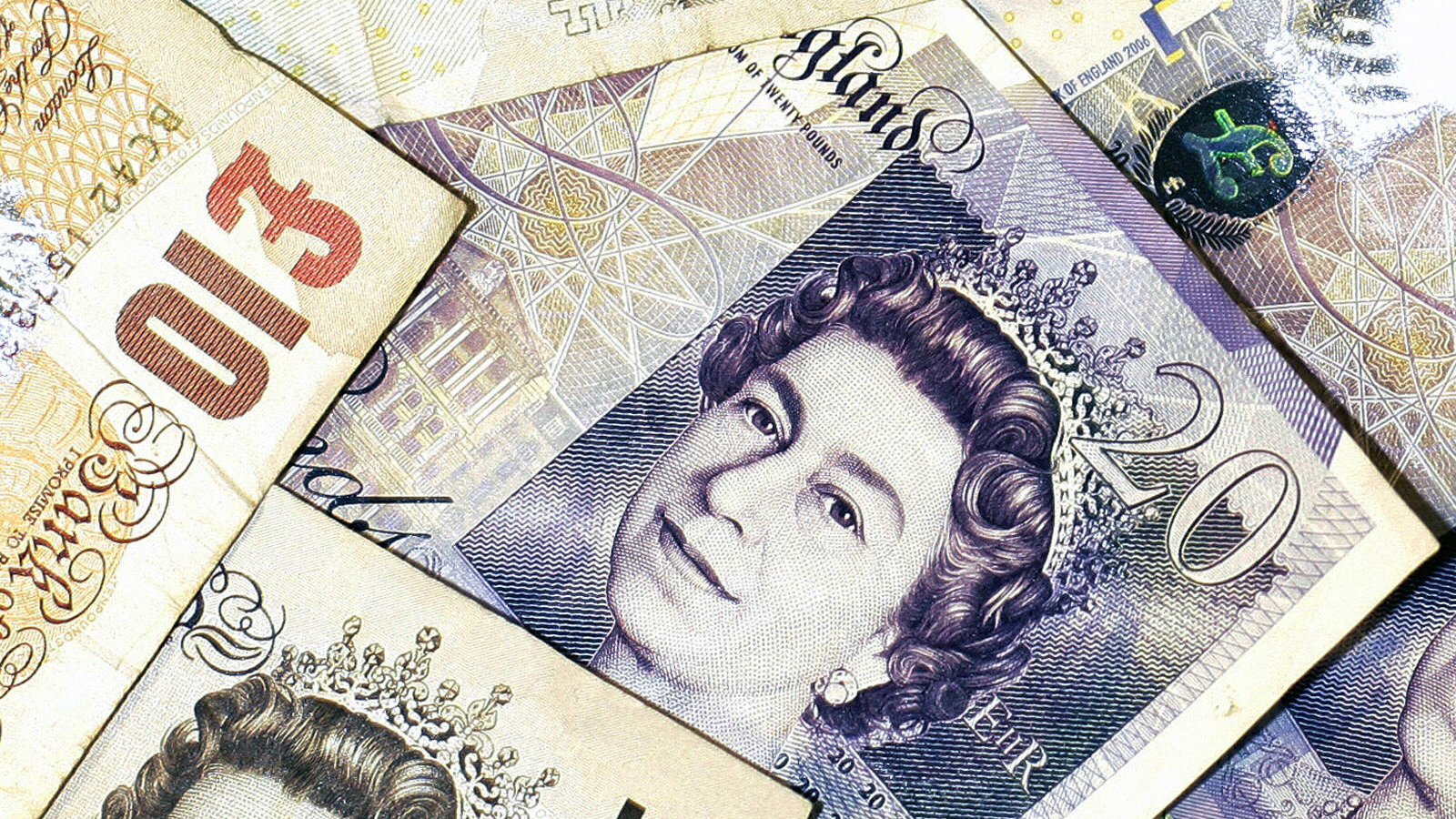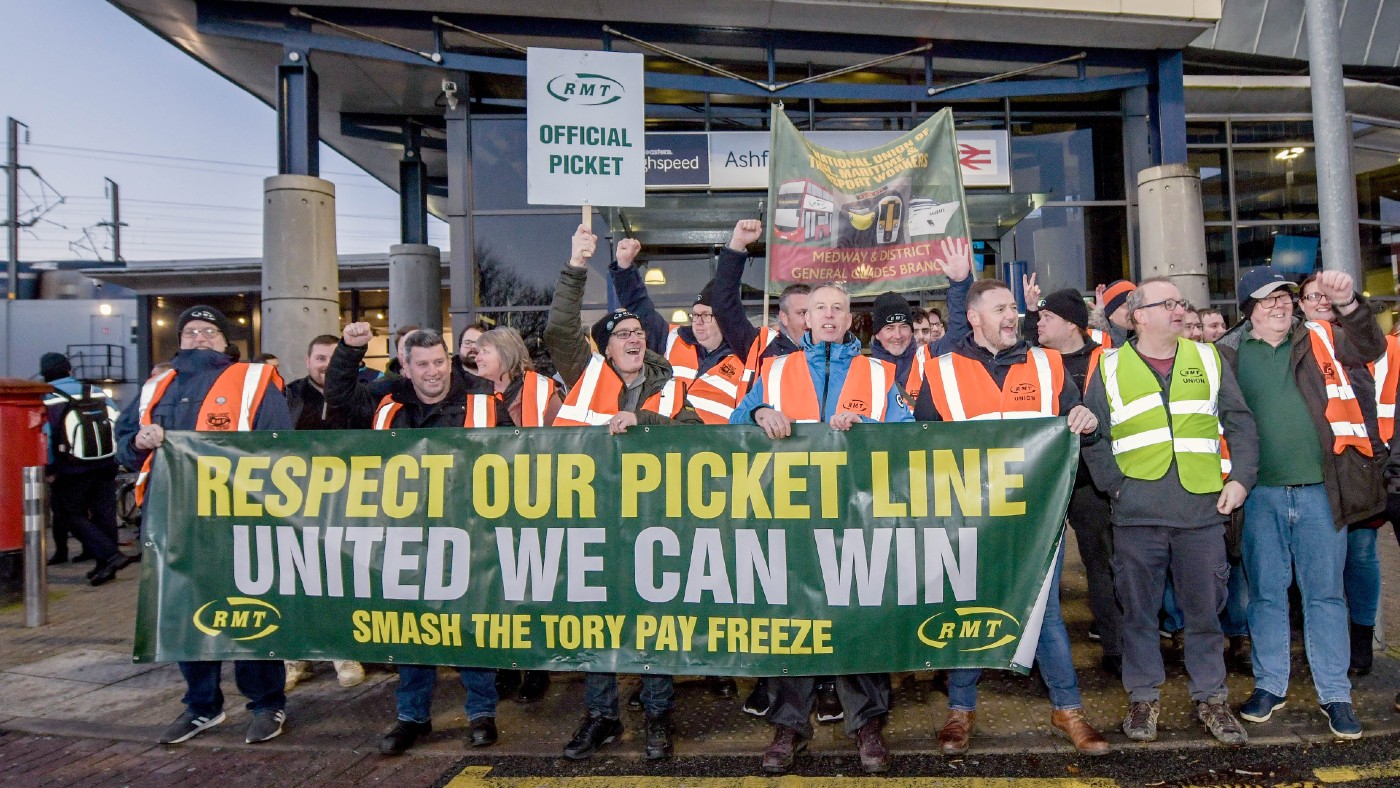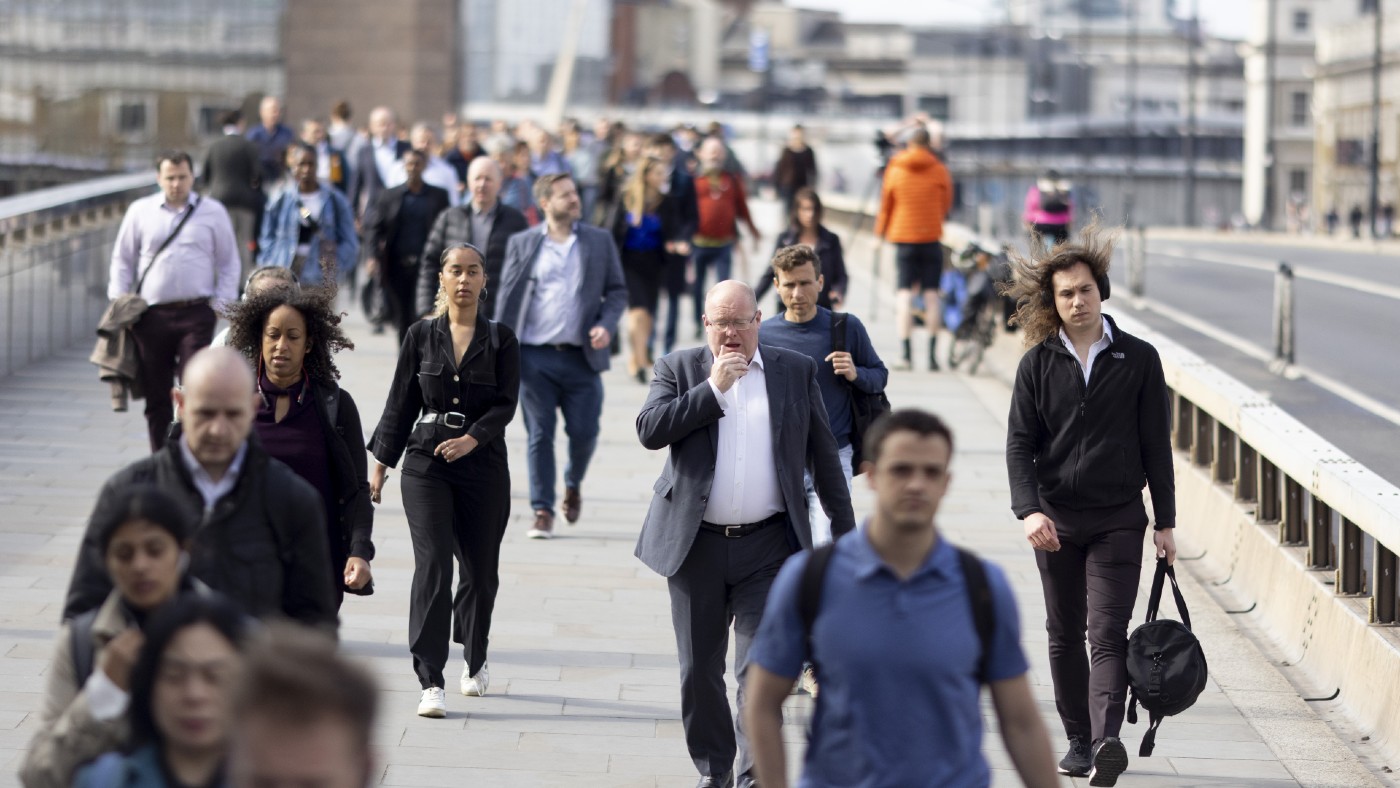UK wage growth at its highest since 2016 EU vote
Analysts expect trickier times ahead for pay and employment

A free daily email with the biggest news stories of the day – and the best features from TheWeek.com
You are now subscribed
Your newsletter sign-up was successful
Total pay in the UK has kept rising at its fastest rate since the financial crisis in 2008 – but only if you do not account for inflation.
Wages including bonuses rose by 3.5% per year in the last quarter, the same as a month ago. Basic pay rose by 3.4% per year, down from 3.5% last month.
However, The Guardian points out that if you adjust for inflation, then real pay is only rising by just over 1.5% per year - the fastest since summer 2016.
The Week
Escape your echo chamber. Get the facts behind the news, plus analysis from multiple perspectives.

Sign up for The Week's Free Newsletters
From our morning news briefing to a weekly Good News Newsletter, get the best of The Week delivered directly to your inbox.
From our morning news briefing to a weekly Good News Newsletter, get the best of The Week delivered directly to your inbox.
Stephen Clarke, the senior economic analyst of the Resolution Foundation, says: “This mini pay recovery is encouraging, but it is likely to be tested in the coming months as inflation is expected to start rising again.”
He adds that although “Brexit uncertainty has not caused businesses to put hiring plans on hold” it has “caused firms to put investment on hold, which may in turn affect productivity and the strength of pay growth in the longer term”.
TUC General Secretary Frances O’Grady was also dismissive, saying: “This modest pay growth is doing little for workers still feeling the effects of the longest pay squeeze for 200 years.”
She called on the government to raise the minimum wage to £10 “as quickly as possible” and give unions “the freedom to enter every workplace to negotiate fair pay rises”.
A free daily email with the biggest news stories of the day – and the best features from TheWeek.com
Economist Rupert Seggins also challenged the celebration, arguing on Twitter that one might expect “pay growth to be even higher than it is”.
Meanwhile, Britain’s employment rate has hit a new joint record high, of 76.1%. This a hop up from 75.4% a year ago. The employment rate for men is 80.5% and for women it is 71.8%.
But Thomas Pugh, UK economist at Capital Economics says gloomier times are imminent for the jobs market. “We suspect that this could mark the peak of employment growth as the Brexit uncertainty reached its crescendo,” he told The Times.
-
 Why is the Trump administration talking about ‘Western civilization’?
Why is the Trump administration talking about ‘Western civilization’?Talking Points Rubio says Europe, US bonded by religion and ancestry
-
 Quentin Deranque: a student’s death energizes the French far right
Quentin Deranque: a student’s death energizes the French far rightIN THE SPOTLIGHT Reactions to the violent killing of an ultraconservative activist offer a glimpse at the culture wars roiling France ahead of next year’s elections
-
 Secured vs. unsecured loans: how do they differ and which is better?
Secured vs. unsecured loans: how do they differ and which is better?the explainer They are distinguished by the level of risk and the inclusion of collateral
-
 Why au pairs might become a thing of the past
Why au pairs might become a thing of the pastUnder The Radar Brexit and wage ruling are threatening the 'mutually beneficial arrangement'
-
 Fastest UK wage rise in 20 years fails to match inflation
Fastest UK wage rise in 20 years fails to match inflationSpeed Read Widening gap between private and public sector wages is also stoking anger among striking workers
-
 Why real wages have suffered ‘their sharpest fall on record’
Why real wages have suffered ‘their sharpest fall on record’Business Briefing Even pay rises aren’t preventing workers from feeling worse off – and that’s a big problem
-
 Labour shortages: the ‘most urgent problem’ facing the UK economy right now
Labour shortages: the ‘most urgent problem’ facing the UK economy right nowSpeed Read Britain is currently in the grip of an ‘employment crisis’
-
 Will the energy war hurt Europe more than Russia?
Will the energy war hurt Europe more than Russia?Speed Read European Commission proposes a total ban on Russian oil
-
 Will Elon Musk manage to take over Twitter?
Will Elon Musk manage to take over Twitter?Speed Read The world’s richest man has launched a hostile takeover bid worth $43bn
-
 Shoppers urged not to buy into dodgy Black Friday deals
Shoppers urged not to buy into dodgy Black Friday dealsSpeed Read Consumer watchdog says better prices can be had on most of the so-called bargain offers
-
 Ryanair: readying for departure from London
Ryanair: readying for departure from LondonSpeed Read Plans to delist Ryanair from the London Stock Exchange could spell ‘another blow’ to the ‘dwindling’ London market